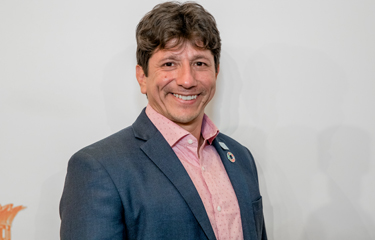Francisco Aldon is the CEO of MarinTrust, which recently celebrated its tenth anniversary.
Now over 10 years old, the MarinTrust standard (formerly IFFO RS) is no longer the new kid on the block. Entering Version 3.0, the standard continues to improve to reflect both the growing demands of the industry and customers, ensuring integrity and traceability of marine ingredients from start (fisheries) to finish (feed plants, cosmetics, nutraceuticals, and pet food sectors). Having joined the standard at its birth, I know it has changed a lot and owes a great deal to all the stakeholders who have contributed to shaping it. The story goes on and the standard will continue to be a reflection of how the society is evolving.
The 2000s was a period of great excitement: free trade was becoming a tangible reality throughout the world. Globalization was on everyone’s lips and aquaculture was booming. There was a growing feeling that some guidance was needed, as people’s welfare and the future of natural resources were at stake. The FAO’s Code of Conduct for responsible fisheries, published in 1995, sent a decisive signal. MarinTrust was born from a need to reassure the aquaculture value chain about the origin and integrity of raw materials going into the production of fishmeal and fish oil. The industry’s trade body, IFFO, the Marine Ingredients Organisation, took the lead in facilitating an industry and NGO Technical Committee with the aim to develop an independent third-party standard. The first plant got its certification in February 2010, and by the end of the year, around 30 plants were certified. At that time, the certification covered the assessment of the fisheries management, the supply and processing of only whole fish and the recognition of third-party certification programs such as GMP+, FEMAS, and IFIS. We moved further up the value chain with the launch of the Chain of Custody (CoC) Standard in 2011, enabling the full traceability of certified marine ingredients from source to end user. This same year, we included by-products (heads, guts, and frames) as a new raw material source to produce certified marine ingredients, encouraging the responsible sourcing and utilization of this valuable ingredient, which otherwise would end up as waste.
The complex issues of environmental and social impacts still needed to be addressed robustly, within the fishmeal plant (the unit of certification). The first step we took, in 2013-2014, was to ensure plants were adhering to national regulations on environmental impacts. We then moved to social practices, adding clauses safeguarding against forced labor and ensuring workers have equal rights and are safe at work. We strengthened this further in 2017 with the launch of Version 2.0 of the standard, with more robust social and environmental accountability clauses.
To encourage improvement in important fishmeal and fish oil producing areas that were not able to meet what the standard required, we launched the Improver Program (IP) in 2012. The IP now has four recognized fishery improvement projects in three different continents. Our efforts have been recognized, with all our approved certification bodies holding ISO 17065 accreditation from 2012 and MarinTrust gaining ISEAL full membership in 2020, following compliance to its internationally recognized standards codes. Through engaging our value chain and stakeholders, Version 3.0 continues our efforts, with proposed developments to strengthen the MarinTrust Fisheries Assessment Criteria for raw materials, assessing the environmental impact of the marine ingredients manufacturing process, creating improved social and welfare benefits for all workers; and evaluating extending the scope to include human rights criteria for vessels supplying whole fish to the marine ingredients manufacturing sector.
The Chain of Custody is also developing, making the most of what technologies offer to build a connection between the marine ingredients industry and the seafood sector intended for human consumption. The blockchain technologies portend a very promising future for global food systems as they enable full traceability back to product origins.
MarinTrust now represents 50 percent of all marine ingredients produced globally, with more than 150 certified plants. Both MarinTrust’s and my personal aim is to standardize the industry’s practices and to unify the whole marine ingredients industry so we can continue to ensure its sustainable growth. We are not there yet, but the standards’ recent developments are an important step along the way.
Photo courtesy of Francisco Aldon






